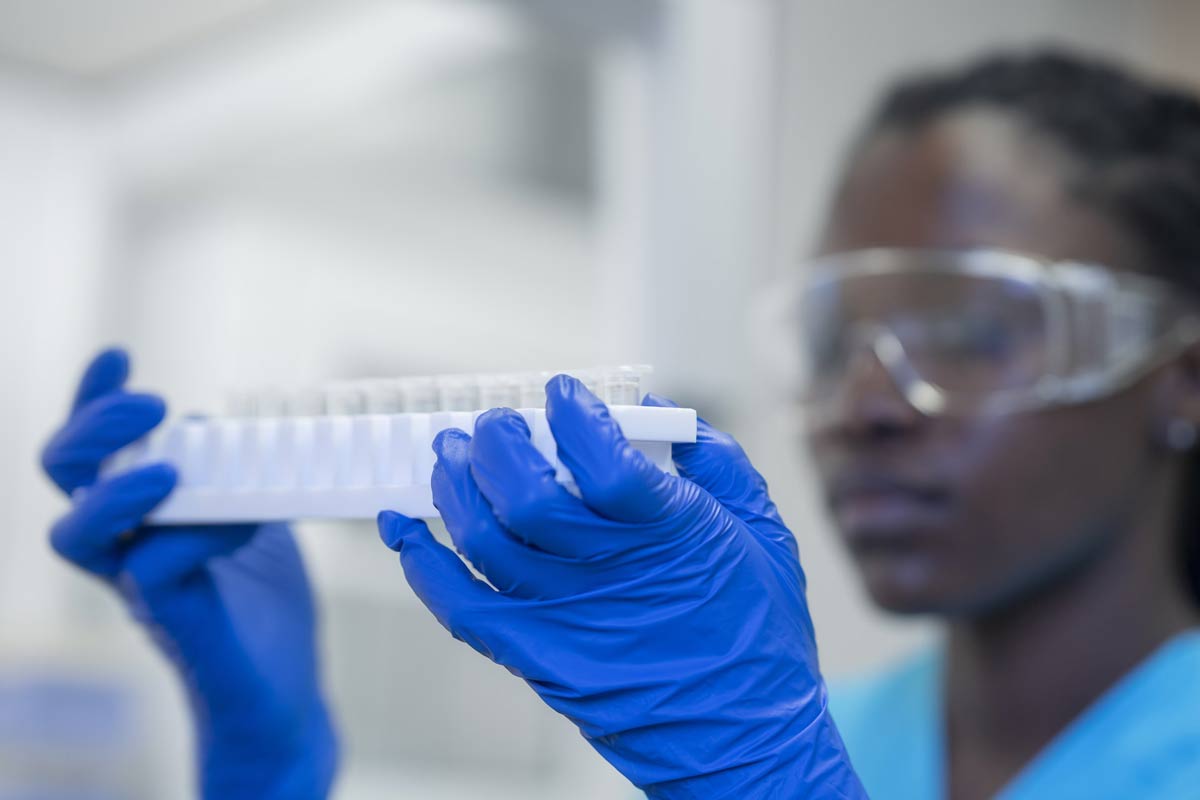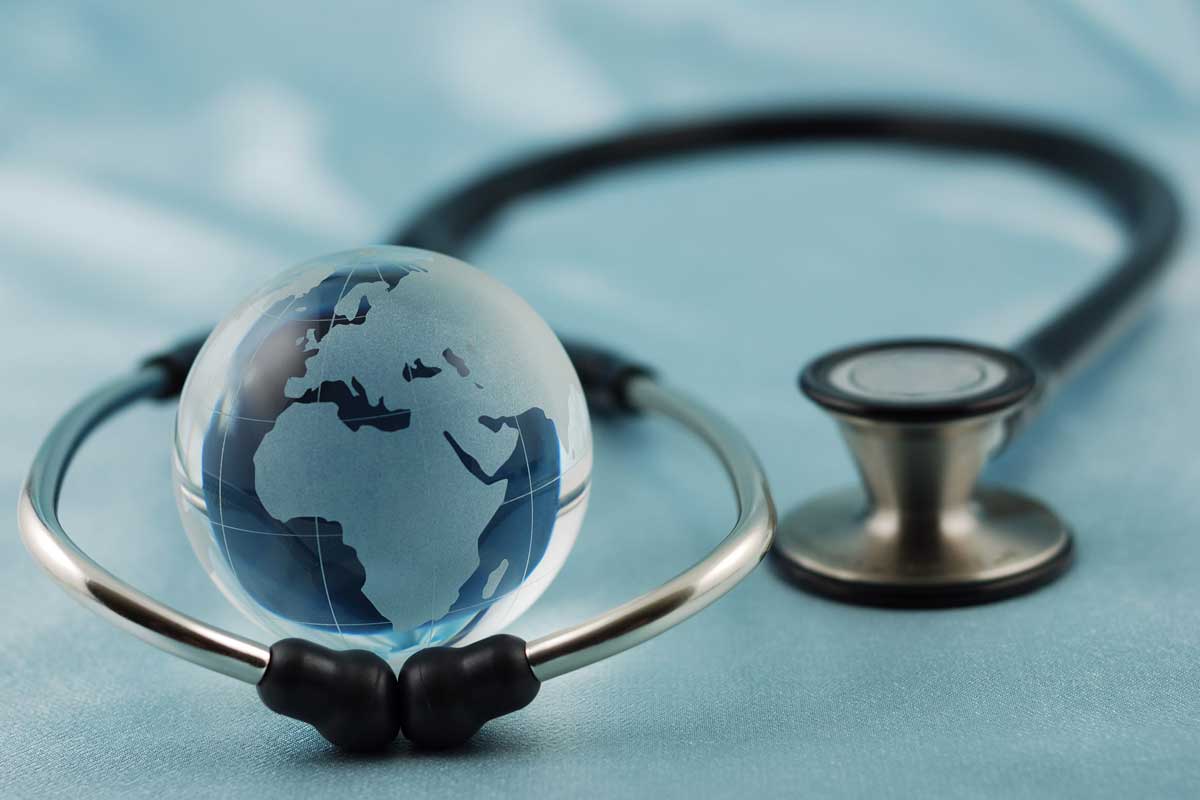4 surprising 'smart' technologies transforming health diagnostics
From smart contacts to watches that can detect Parkinson's, here's how a range of new diagnostics technologies are reshaping how you'll stay healthy.
- 5 September 2023
- 3 min read
- by World Economic Forum

The adage "prevention is better than a cure" is never truer than when applied to healthcare.
And a growing diagnostics market is helping make that a reality. Healthcare systems around the world are increasingly adopting medical technologies that support intervention at an earlier stage. Diseases can be detected earlier, risk factors identified and addressed or mitigated, and treatments can be more targeted.
The use of these technologies is not restricted to hospitals and healthcare settings – people are increasingly monitoring their own health.
A good example of this is continuous glucose monitoring which is becoming more commonplace and allows diabetes patients to get on with their lives thanks to a device that tracks blood sugar levels. But a monitor on your arm might seem prosaic compared to some of the places diagnostic technologies are cropping up.
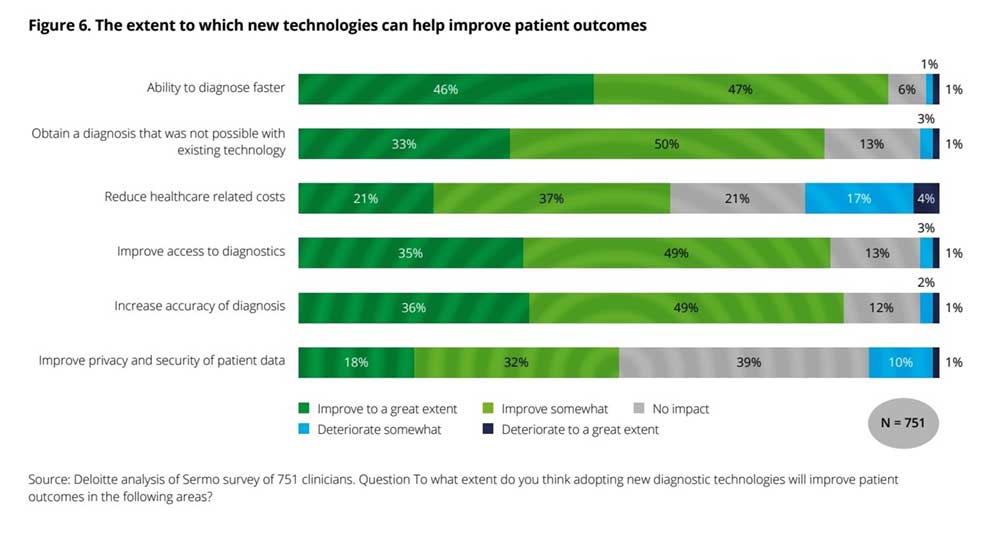
Image: Deloitte
1. Seeing the symptoms sooner – smart contact lenses
Researchers at Stanford University and POSTECH have developed a smart contact lens that can continuously monitor glucose levels. Using nanoparticles embedded in the polymer hydrogel that forms the lens, the device provides a non-invasive way to monitor for high or low sugar levels. It directly correlates glucose levels in tears and blood without needing another medical device like a glucometer.
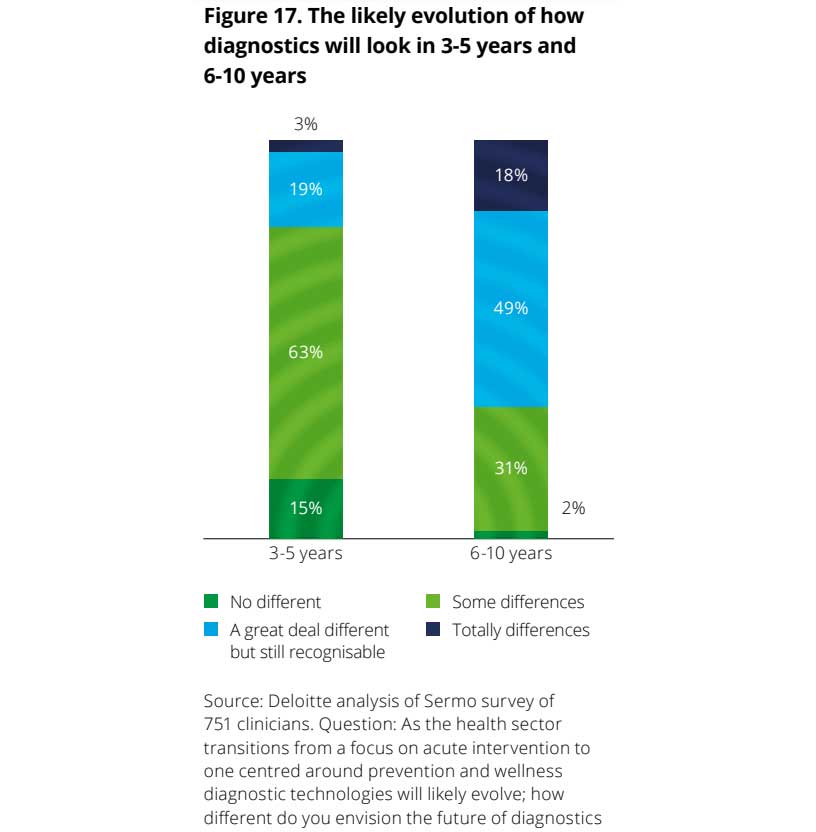
Image: Deloitte
2. The secrets of your secretions – smart toilets
Your bodily fluids can tell physicians a lot about your health. And its continuous monitoring can help detect changes and biomarkers that may indicate less than optimum health.
In future, "smart" toilets could become a feature in your bathroom, collecting samples and feeding back data. They could help detect disease markers for illnesses such as colorectal or urological cancers. They could be helpful to those with a genetic predisposition to conditions like irritable bowel syndrome, prostate cancer or kidney failure.
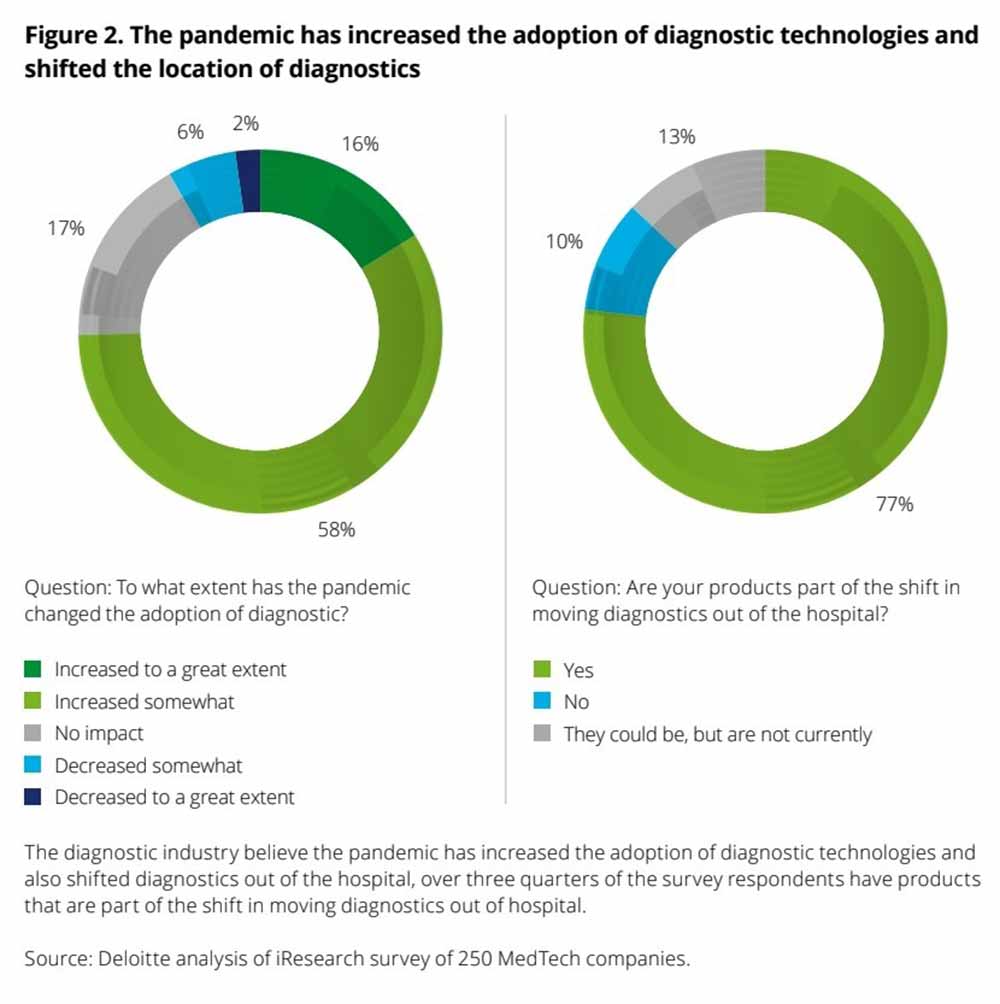
Image: Deloitte
In its Global Health and Healthcare Strategic Outlook, the World Economic Forum notes that home diagnostics is a growing trend. It also highlights the importance of diagnostics to help ensure equitable access to treatment and care.
3. A warning from your watch - smartwatches that detect Parkinson's
The growth in the smartwatch market has provided researchers with a wealth of information about our daily habits, heart rate and exercise routines.
Have you read?
The data generated by wearable devices could also be used to detect Parkinson's disease, researchers from Cardiff University believe. Parkinson's is typified by motor changes that bring about tremors and slowness of movement, but non-motor changes can pre-date the onset of these symptoms by many years. Early diagnosis of the disease can be difficult.
However, using Artificial Intelligence (AI) analysis of data gathered from the accelerometers in smartwatches, scientists could distinguish people living with Parkinson's, including those in the early stages, from the general population.
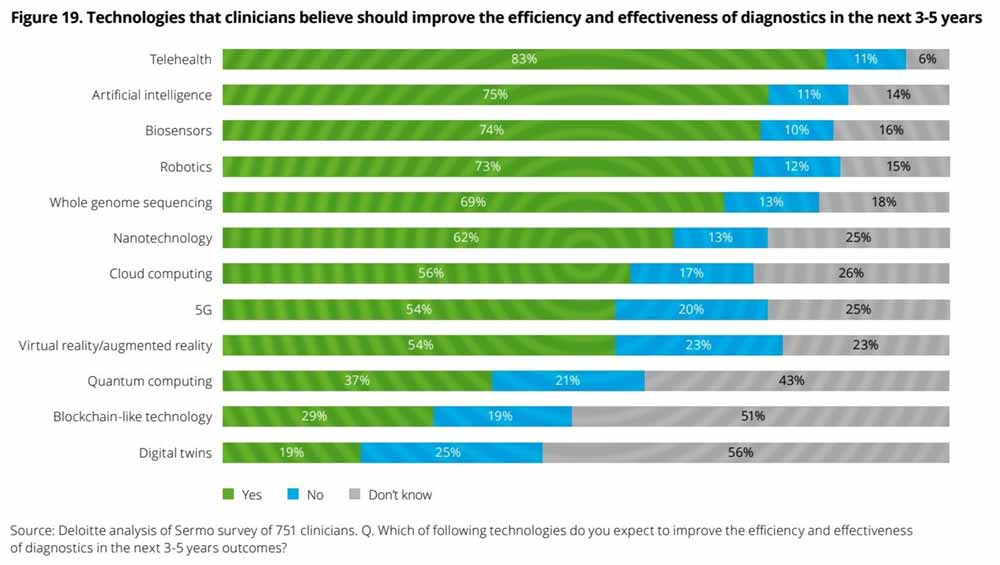
Image: Deloitte
4. Checking out your health – shopping trolley sensors
Atrial fibrillation causes an abnormal heart rhythm and can increase the risk of stroke. But if the condition is picked up early, treatment options are available.
A trial by researchers in the UK saw electrocardiogram sensors fitted in the handles of supermarket trolleys. Over 2,000 adults were scanned by holding the handle for at least 60 seconds, with some participants who were unaware they were affected subsequently contacted to arrange a follow-up appointment.
Although the inventive approach needs some refining, researchers could help pick up cases earlier.
Written by
Website
This article was originally published by the World Economic Forum on 29 August 2023.

